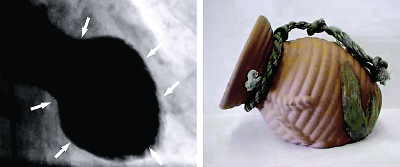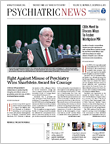The connections between the heart and mind are becoming better understood, but most of this knowledge is related to common cardiovascular problems like acute heart attack and stroke. A lesser known cardiac condition on which more insight has recently been gained is takotsubo (stress) cardiomyopathy, often referred to as “broken heart syndrome.”
Takotsubo cardiomyopathy involves the ballooning of the heart’s apex (the lower tip), resulting from a weakening of the surrounding heart muscle. Though takotsubo can lead to heart failure or arrhythmias, it is generally viewed as a benign heart condition. This disease predominantly affects older women, and emotional stress or anxiety (for example, loss of a loved one) is believed to be a common trigger.
However, the data obtained from 1,750 patients as part of the International Takotsubo Registry found that this condition may not be so benign after all, noted study author Abhiram Prasad, M.D., a professor of interventional cardiology at St George’s University Hospital in London and an adjunct professor of medicine at the Mayo Clinic.
“We found that the rates of serious complications during hospitalization, including death, were similar for takotsubo cardiomyopathy as for a typical heart attack,” he said. “Overall, nearly one-fifth of the patients experienced some serious event. And people with a psychiatric or neurologic diagnosis are at increased risk for one of these complications.”
This increased risk is noteworthy since acute or chronic psychiatric issues were found to be three times as prevalent among takotsubo patients (42.3 percent) compared with people who experienced a typical heart attack (14.3 percent). Mood disorders were the most common diagnosis, present in about 20 percent of patients, while anxiety disorders were present in 10 percent.
Neurological issues, particularly seizures or chronic migraines, were also more prevalent among takotsubo patients. Some 27.5 percent of patients with takotsubo (stress) cardiomyopathy reported an acute or chronic neurological problem, compared with 14.5 percent of heart attack patients.
“These findings suggest a potential link between neuropsychiatric disorders and takotsubo cardiomyopathy and should prompt prospective studies,” Prasad said.
Another take-home message of this study, Prasad noted, is that takotsubo cardiomyopathy affects more than older women. Also, previous reports on takotsubo cardiomyoptahty may have overemphasized this group of patients, thus leading to the mindset that takotsubo is a benign disease.
“Yes, older women are the most prominent population group affected, and the analysis shows that the textbook takotsubo manifestation, an older woman who has an event following an emotional trigger like anxiety, does have a low risk of complications,” he said. “However, 20 percent of the patients were either men of any age or women under 50. In addition, physical events such as respiratory problems or sinus infections are more common triggers than emotional stimuli, while nearly one-third of patients appear to have no triggers at all. And these groups—younger adults, events without an emotional trigger, and people with a psychiatric diagnosis—are at risk for serious health problems.”
The International Takotsubo Registry is a consortium of 26 centers in Europe and the United States set up to investigate clinical features, prognostic predictors, and health outcomes of takotsubo cardiomyopathy. This study was supported by research grants from the Mach-Gaensslen Foundation, Prof. Otto Beisheim Foundation, Swiss Heart Foundation, the Olten Heart Foundation, University of Zurich, Swiss National Science Foundation, and Foundation for Cardiovascular Research–Zurich Heart House. ■
An abstract of “Clinical Features and Outcomes of Takotsubo (Stress) Cardiomyopathy” can be accessed
here.

